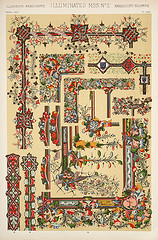In response to this quotation from Nelson Goodman’s “Ways of Worldmaking”:
“As intimated by William James’s equivocal title ‘A Pluralistic Universe,’ the issue between monism and pluralism tends to evaporate under analysis. If there is but one world, it embraces a multiplicity of contrasting aspects; if there are many worlds, the collection of them all is one. The one world may be taken as many, or the many worlds taken as one; whether one or many depends on the way of taking.”
Dr. Spinoza made this comment:
“[….] notice the curious tension in the title -- whatever there is, is pluralistic (there are many of them? many ways of seeing them? what?) -- but it is also a universe -- a single entity.”
We may naively think that there must by needs be some one single entity which contains all space, and all of the objects of space, and that this single entity is the universe.
This makes sense to us, I think, based on some very provincial analogical thinking.
I recognize that Dr. Spinoza probably didn’t put a great deal of thought into the wording of his reaction to Goodman’s statement, and he may be unhappy to see me make such ado about it, but I think that Dr. Spinoza's statement accurately caught what Nelson Goodman was trying to project… (and I also think that Nelson Goodman catches an idea of the universe which is a very common one -- the thing which made me angry is that Goodman has attached that common idea onto William James when James explicitly doesn’t hold that common idea, and challenges it in an extraordinarily straightforward and clear way.)
So, what can be said about the universe as a single entity, and what can be said about this 'tension'?
An entity is a body, a unit, a thing, an article.
I have bestirred myself to look up the word ENTITY in the Webster’s Ninth New Collegiate Dictionary I have handy:
“1 a: BEING, EXISTENCE, esp: independent, separate, or self-contained existence b : the existence of a thing as contrasted with its attributes 2 : something that has separate and distinct existence and objective or conceptual reality.”
I am fascinated to see that, according to this dictionary, the derivation is from the Latin
“ens” existing thing, of esse to be…
Now that I have given this dictionary definition to you, I need to stop for a moment in order to make a note of caution.
In giving you a dictionary definition, I am working in a way which I almost always avoid. Looking at this particular definition, it seems that if there were ever a place to avoid using dictionary definitions, it has got to be here, where every word is a philosophical quagmire.
I note the quagmire, and yet I'll walk right into it.
I will draw on these definitions, because in their danger, their philosophical danger, they will help us assess the philosophical danger we have lived with unconsciously and thoughtlessly for hundreds of generations, believing in our thoughtless way that we are secure and sensible, when we are not.
We really do seem to think that the universe is, if anything is, an independent, separate, and self-contained existence.
It is, we seem to think, the self-contained existence which contains all of the other self-contained existences.
As the self-contained existence which contains all of the other self-contained existence, it is the "absolute entity."
This conception of the universe is an absolutist conception.
Absolutist conceptions are conceptions which set up or rely upon an idea of one independent reality. They are not accurate conceptions or the only conceivable conceptions, or conceptions we must by necessity hold, or conceptions which experiences compel us to accept, or anything of the sort. We just treat them as if they had these qualities: of accuracy,necessity, compulsion, authority. ( I want to show later - I'll do it very soon- that no contemporary cosmologist or topologist or physicist holds the absolutist conception of the universe.) We 'think' we MUST treat them this way… why? Just where the heck do these 'absolutist' conceptions come from, and why?
When Nelson Goodman says this:
“If there is but one world, it embraces a multiplicity of contrasting aspects; if there are many worlds, the collection of them all is one. The one world may be taken as many, or the many worlds taken as one; whether one or many depends on the way of taking.”
He may at first appear to be giving due to a pluralistic account, but I will be arguing that he is not – that this has nothing to do with developing a pluralistic thinking.
In this quotation from Goodman, I note the tension which Dr. Spinoza's comment has drawn attention to… That tension is there, but as part of the disease state which this kind of philosophy induces.
It’s not a tension which can propel us outward and away – It is just an enervating tension to make our time in the fly bottle even more miserable than it already was. Our fly bottle is a universe conceived as a self-contained existence, (even if that self-contained existence could be called a collection of diversity.)

